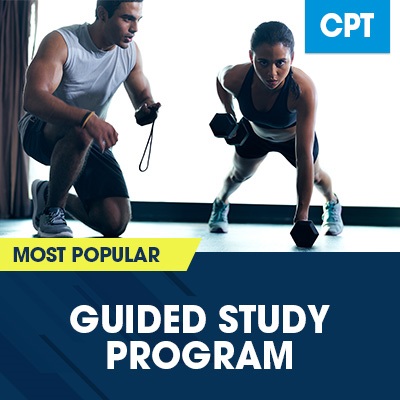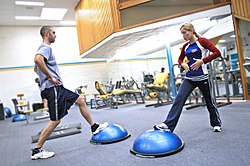
It's not yet clear what it takes to become a nutritionist or personal trainer. It's a good idea to talk with other certified trainers as well as read articles about the challenges associated with becoming a personal coach or nutritionist. You will find many resources online to learn more about the many aspects involved in the health and fitness industry as well as the challenges faced by new professionals.
Exams
Exams for nutritionist and personal trainer certification are important steps in your journey to becoming a certified fitness professional. There are many online resources that can help you prepare for these exams. These programs often offer online practice exams, making it easier to prepare for the real exam. You can print your certification once you have passed the exam.

The Precision Nutrition Level 1 Certification, one of the most well-respected nutrition certifications is available. This course combines nutrition science with coaching skills for behavior change. You can complete this course entirely online and in six months. This program offers valuable training to personal trainers, nutrition consultants, and athletes.
Certification
To be a successful personal or nutritionist, it is necessary to obtain the appropriate credentials. There are many institutions that offer certifications for personal trainers or nutritionists. They can be earned separately or combined. These certifications come with many benefits. They can improve your earning potential in the fitness industry.
Personal trainers are nutritionists who help individuals lose weight and heal injuries. They also strengthen their muscles and promote overall health. They are able to assess the nutritional and physical needs of clients and set goals for them. You should get hands-on experience in various settings to improve your skills and knowledge before you apply for certification as a personal or nutritionist.
Personal trainers and nutritionists have their limitations
There are some limitations to working as a personal trainer and nutritionist. First, it is against the law to give nutrition counseling to clients without having been certified. Nutrition advice is a specialty that is better left to registered dietitians or medical practitioners.

Personal trainers cannot not only diagnose and prescribe diet supplements, but they can also not provide medical advice. A personal trainer should be certified in nutrition and dietitian. This is crucial because supplements for fitness can cause severe side effects and it is not a good idea to take them without first consulting your doctor. A lot of herbal supplements can be toxic, especially when used in excess or with prescription medication.
FAQ
Can I eat while I exercise?
Yes. You can eat what you like while you work out. Choose low-calorie snacks like watermelon. These foods contain nutrients that help you perform better during workouts.
How many hours of rest should I get each evening?
The amount of sleep that is recommended for each individual depends on their age, gender and needs. Adults need between 7 to 9 hours sleep each night. Teenagers and young children generally need around 10 hours of sleep each night. This number decreases as they age.
What should I eat before I work out?
No. It doesn't matter what you eat before going to the gym. You might be hungry after a workout, so you may want to snack on fruit or yogurt.
Statistics
- Globally, 81% of adolescents aged 11-17 years were insufficiently physically active in 2016. (who.int)
- One study showed that adults who watch more than 4 hours of television daily had an 80% higher risk of death from cardiovascular disease. (heart.org)
- An estimated 110,000 deaths per year could be prevented (cdc.gov)
- Adolescent girls were less active than adolescent boys, with 85% vs. 78% not meeting WHO recommendations of at least 60 minutes of moderate to vigorous intensity physical activity per day. (who.int)
External Links
How To
How to Burn Belly Fats Faster
Belly Fat is often considered a problem for those who want to lose weight. When you stop and think about it, Belly Fat can actually be a blessing. Your organs are protected from being damaged by excess belly fat. Let's look at how to rapidly lose belly fat.
Stress and inactivity are two of the major factors that cause us to store body fat. Because stress stimulates the release of cortisol hormone, it makes us hungry all the time. Cortisol levels are increased by insulin. The excess calories stored as fat are then stored by insulin. The release of adrenaline from our bodies causes increased appetite. These extra calories are broken down through exercise.
There are many methods to lose belly fat. You can choose to try any of these options, depending on your budget. These are some great tips to help you lose belly fat fast.
-
Try to eat less food. Instead of eating three large meals per day, try to eat smaller meals. You'll eat fewer calories this way.
-
Drink plenty of water. Water flushes out toxins in your body and helps you stay hydrated. Water before each meal can help you feel fuller longer and reduce your appetite so that you don't overeat.
-
Avoid unhealthy snacks. If you're looking for quick fixes, snack foods like chips, cookies, candies, etc. Although tempting, they can be very unhealthy. Avoid these unhealthy treats. They are full of empty calories, too much sugar, and can be very fattening. Choose healthy alternatives like fruits and vegetables, nuts, seeds, whole grains, and seeds.
-
At least three times per semaine, do strength training. Strength training helps build muscle mass, which means that you can burn more calories even when you are resting. It also strengthens bones, muscles, ligaments, tendons, the heart, lungs, and joints.
-
Move regularly and stretch. Stretching is a great way to increase flexibility and mobility. This helps reduce back pain. Walking is great for burning calories, especially brisk walking for 30 minutes.
-
Reduce alcohol intake. Alcohol adds empty calories to your diet and has no nutritional value whatsoever.
-
You can lose weight slowly. Your current weight is the first step to losing weight. Then calculate your ideal weight by adding 5% to 10% of your total body weight. Once you have calculated your target weight, start reducing calorie consumption by 500-1000 calories daily until you reach your goal.
-
Avoid processed foods. These foods are high on sugar, salt, and additives. While processed foods can be convenient, they don't offer enough nutrients to ensure your health.
-
Don't skip breakfast! Breakfast improves concentration, memory, energy, and stamina. You should have protein (such as eggs) and fiber (such as oats) for breakfast.
-
Have regular bowel movements. Bloating and gas can be caused by irregular bowel movements and constipation. Increase your fiber intake and drink lots of water.